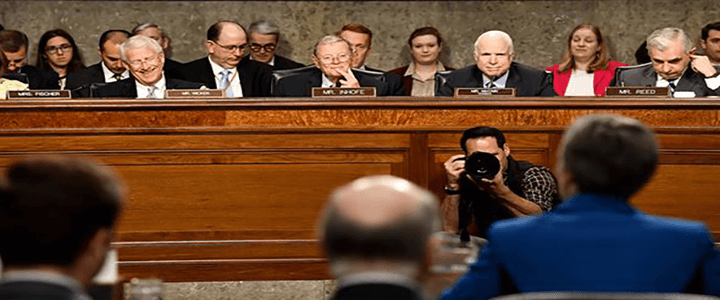Sometimes the intersection between elections and national security is too powerful to ignore. Chelsea Manning is not content with leaking 750,000 files from the SIPRNet, the military’s classified Secure Internet Protocol Routing Network. Now she wants to be a United States Senator.
Conviction not a bar to holding office
To review: Manning, 30, was convicted under the Espionage Act (among others) of illegally copying the files, most of them classified Secret, burning them to CD, and giving them to WikiLeaks. She pleaded guilty to 10 of the 22 charges she originally faced, and prosecutors proceeded to trial on the remaining 12. In 2013, she was convicted on every count except the most serious, “aiding the enemy.”
For her crimes, she was sentenced to 35 years confinement at the U.S. Disciplinary Barracks at Fort Leavenworth, Kan. After serving just four years of that sentence (plus roughly three years on remand before and during her trial) President Obama commuted her sentence in the final days of his presidency.
Her actions, committed while she was known by her birth name, Bradley, constitute what has widely been described as “the biggest leak of classified material in U.S. history.” But that is not a disqualifier for serving in the Senate.
Obama’s commutation let Manning out of prison early, but it was not a pardon. Manning remains a convicted felon. Some states allow released felons to vote, and others do not. Maryland, where Manning lives and plans to run in the Democratic primary against incumbent Sen. Ben Cardin, restored felon voting rights in 2016 when the legislature overrode Gov. Larry Hogan’s veto of the measure.
But even if Maryland still prevented felons from voting, the state could not prevent Manning from running for federal office. The Constitution places only three requirements on serving in the Senate: that the person be at least 30 years old; that the person has been a citizen for at least nine years; and that the person “be an Inhabitant of that State for which he shall be chosen.” That’s it.
No state may add any additional restrictions. Certainly, in some states ballot access laws are able to keep fringe candidates with no money and no organization off the ballot, but if a would-be candidate can clear those hurdles, there’s no stopping them. In fact, James Traficant, expelled from the House of Representatives in 2002 after conviction of bribery, racketeering and tax evasion, ran for his seat as an independent later that year from the federal penitentiary. After his 2009 release, he ran again for his old seat in 2010.
If elected, Manning would regain access to classified info
Should lightning strike and Manning be elected, her criminal record — which would disqualify any other person from receiving a security clearance — won’t prevent her from accessing classified information. Because senators and congressmen don’t need security clearances.
As a 2016 Congressional Research Service report put it, “Security clearances are not mandated for the President, Vice President, Members of Congress, Supreme Court Justices, or other constitutional officers. The criteria for election or appointment to these positions are specified in the U.S. Constitution, and except by constitutional amendment, no additional criteria (e.g., holding a security clearance) may be required.”
These constitutional officers do not, however, have the automatic “need to know” required to access information, so there are some limits on what information actually makes its way to their desks.
But even more alarmingly, there would be nothing to prevent a Sen. Manning, in the course of debate either in committee or on the Senate floor, from releasing what classified information she did come to possess. The Constitution specifically protects members of Congress from prosecution “for any Speech or Debate in either House.” This clause, meant to protect a member from politically motivated prosecution for their political views, was determined to apply to classified information in 1972.
Younger readers may remember Mike Gravel for one of the most bizarre campaign ads of all time, made while he was running for the Libertarian nomination for president in 2008. But in 1972, Gravel was a freshman Democratic Senator from Alaska who read portions of the “Pentagon Papers” into the Congressional Record. Not only did the Senate not expel Gravel, which it could have done, he won reelection in 1974.
The fact that Manning still sees herself as a whistleblower is more concerning than her use of the “royal we” in announcing her candidacy. The fact that so many Manhattan elites give her the time of day is even more concerning than both of those.
Sen. Cardin really has nothing to worry about. Manning is, at the end of the day, just another in a long succession of “vanity candidates” who run for office to massage their own egos. But her public defiance, and the fact that so many are letting her get away with it, sends exactly the wrong message to other cleared professionals.



